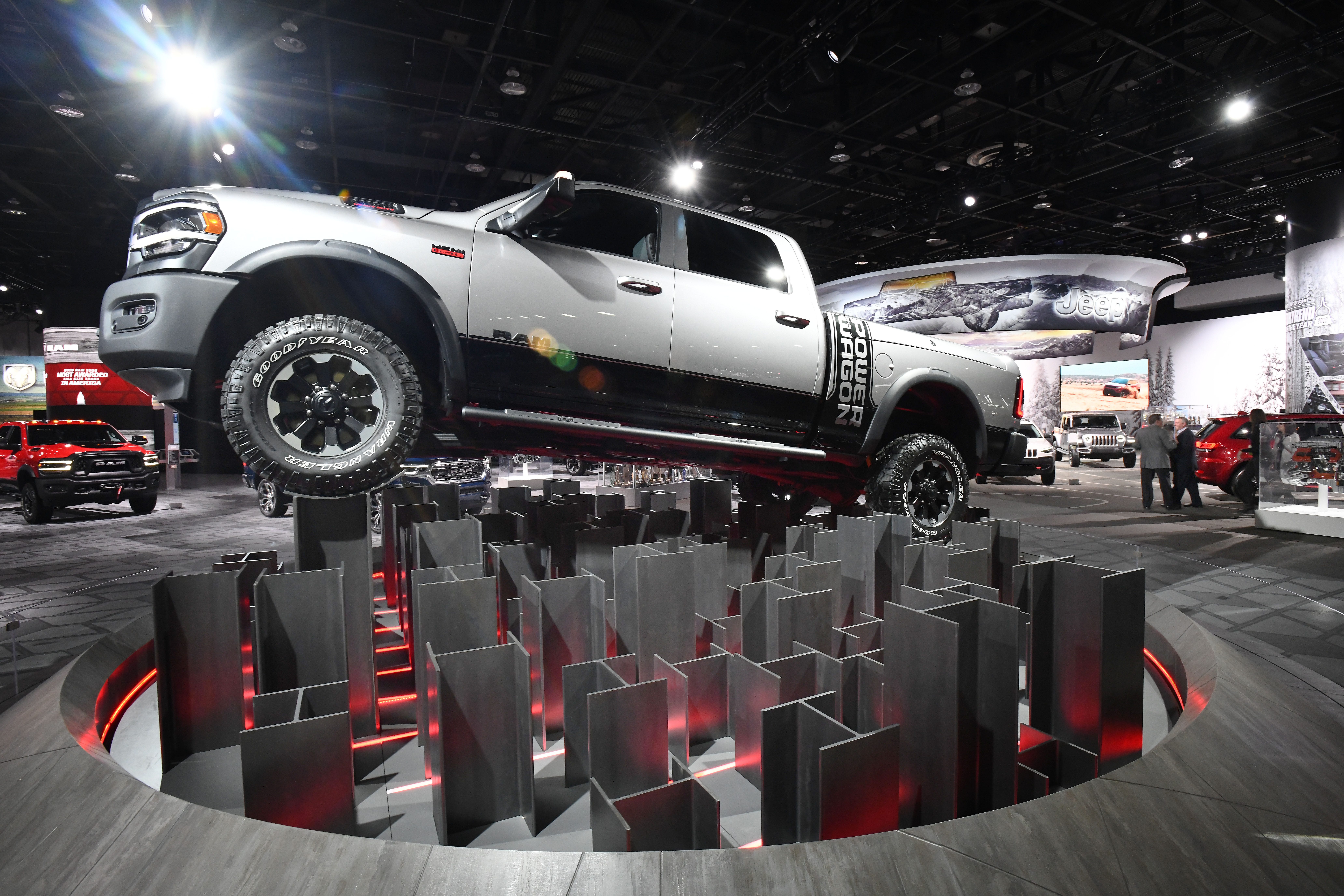Federal shutdown halts EPA certification, raises hurdle for vehicles on way to market
 Keith Laing
Keith Laing
Detroit — Uncertainty over federal emission testing is hampering automakers' ability to get new pickups certified for sale, according to the CEO of Fiat Chrysler Automobiles NV.
FCA CEO Mike Manley said the Environmental Protection Agency certified that tailpipe emissions of the Ram 2500 heavy-duty pickup met federal standards, but the continuing shutdown of the federal government has suspended certification of its 3500 pickup.
“It’s on hold,” he told The Detroit News on Tuesday, “hopefully until the shutdown gets resolved. At some point, they need to be certified.”
Both trucks are scheduled to go on sale this spring.
General Motors Co. also says it is "among the automakers that are awaiting decisions in the certification process for a number of model-year 2020 vehicles." The company did not provide a list of specific models being impacted.
Ford Motor Co. did not respond to a request for comment.
The U.S. Environmental Protection Agency, which operates the National Vehicle and Fuel Emissions Laboratory in Ann Arbor, is one of 12 federal agencies that haven't been funded during the partial government shutdown that is approaching its fourth week on Friday. The EPA is required by the Clean Air Act to certify that any new motor vehicle or new engine conforms with federal emission rules before it goes on sale.
The EPA said in a statement to The Detroit News that it "has not significantly delayed any certification application."
Manufacturers test their own vehicles following EPA's test procedures — usually pre-production prototypes — and report the results to EPA.
"EPA reviews the results and confirms about 10-15 percent of them through our own tests at the National Vehicle and Fuel Emissions Laboratory," the EPA's website says.
Gloria Bergquist, vice president of communications and public affairs for the Alliance of Automobile Manufacturers, which lobbies for major carmakers, said automakers will not be able to sell new cars without the EPA's stamp of approval.
She said carmarkers hope for a quick resolution.
"Automakers continue to monitor the performance of their products during this time, and we continue to hope the government shutdown is resolved expeditiously so EPA staff can carry on their work," Bergquist said.
Complicating matters further for automakers, the Trump administration has moved to freeze Obama-era gas-mileage rules after the 2020 model year, when automakers will be required to build fleets averaging nearly 39 miles per gallon fleetwide. The federal government also has indicated it could move to revoke a longstanding waiver allowing California and other states to set their own stricter standards, touching off a legal battle that is likely to take years to settle.
Michelle Krebs, senior analyst for Autotrader, said "automakers are proceeding on the notion that they're going to have lower emissions and have better fuel economy," despite the fight over mileage rules in Washington.
"That's why you heard a lot of electrification and hybrids," she said of the products on the floor at the Detroit auto show. "Electrification is moving into three-row sport utilities. Ford announced the Explorer is going to have a hybrid and Cadillac announces they've got an electric sport-utillity coming."
Krebs said automakers are focusing right now on more pressing issues involving trade and customers' ability to finance their vehicles. "There's a whole lot more other uncertainties weighing heavily on automakers, namely tariffs and interest rates," she said.
Dan Becker, director of the Safe Climate Campaign, which advocates for solutions to global warming-related issues, said automakers can do most of the necessary emissions testing themselves.
"Automakers do a fair amount of testing on their own, far more than most people know," he said. "What they're looking from Ann Arbor is a rubber stamp from the Trump administration that their numbers are correct."
Becker said automakers may regret lobbying the Trump administration to roll back the stringent gas mileage rules enacted by the Obama administration.
"The industry always talks about certainty and predictability, and how uncertainty is bad," he said. "They had certainty. They had predictability. They threw it out for political expediency to get rid of standards they never really liked. This is a case of 'be careful what you wish for.'"
Becker said automakers will still have to comply with stringent gas-mileage rules in California, barring a major move to revoke that state's right to set it is own standards that would set up a lengthy legal fight.
"What they know they can plan for is California will have tough standards," he said, "unless the administration can run California off the road, which I don't think it can."
klaing@detroitnews.com
(202) 662-8735
Twitter: @Keith_Laing